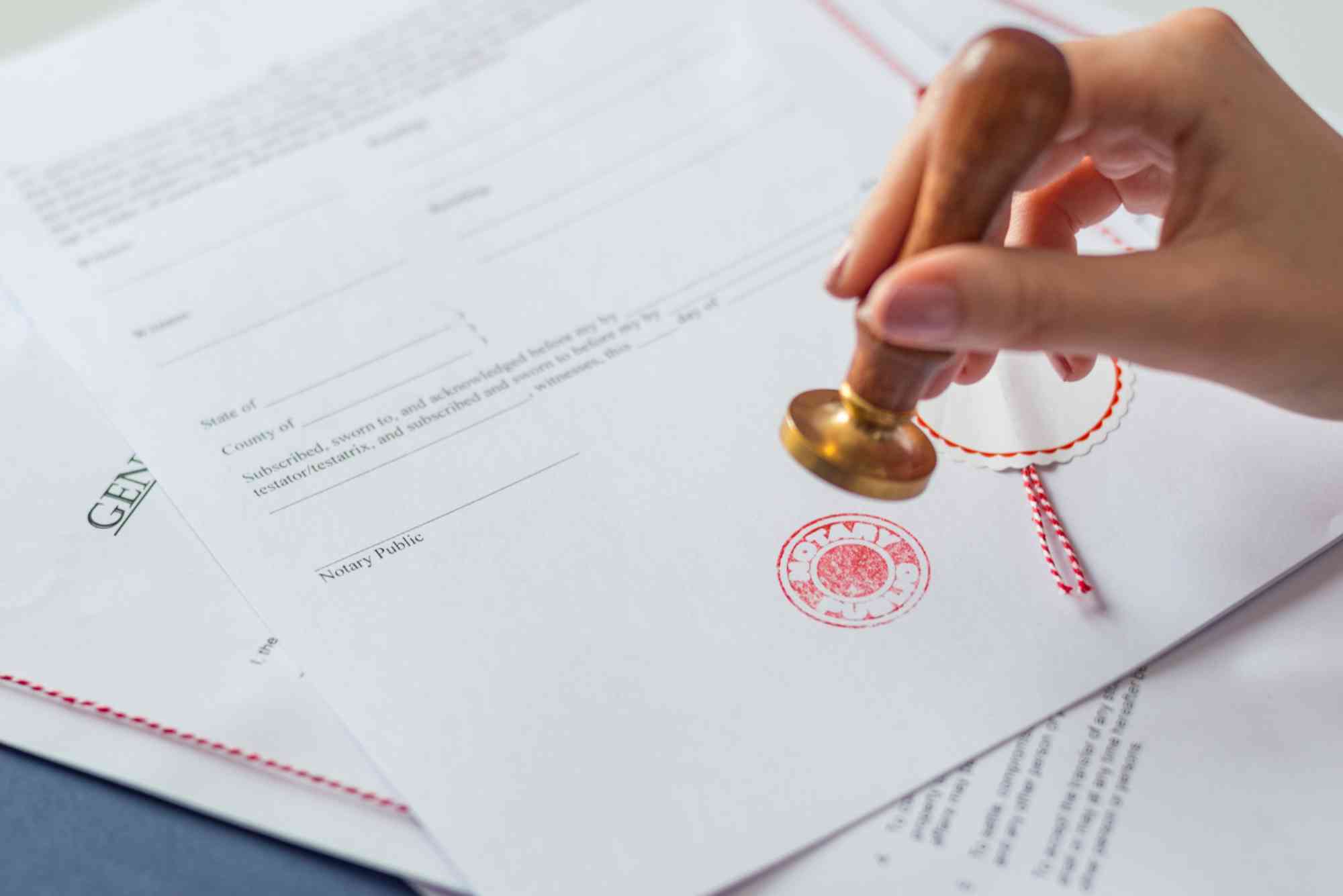Employee travel within the UK is a common occurrence in many businesses, spanning various industries. However, ensuring that employees are adequately reimbursed for their expenses while adhering to legal and company policies can be a complex task. In this article, we will delve into the intricacies of expense rates for employees traveling within the UK, covering everything from understanding the basics to implementing best practices.
Understanding Expenses Rates
Expense rates play a pivotal role in facilitating smooth and fair reimbursement processes for employees traveling within the UK. They encompass various categories of expenses, including accommodation, meals, transportation, and miscellaneous costs incurred during business travel. Understanding the nuances of expense rates is crucial for both employers and employees to ensure transparency, compliance, and fairness.
When it comes to accommodation expenses, rates can vary significantly depending on the location within the UK. Urban centers like London typically have higher accommodation costs compared to smaller towns or rural areas. Understanding these variations allows employers to allocate appropriate budgets for accommodation expenses based on the specific destination of employee travel.
Meal expenses also form a significant part of expense rates, with allowances typically provided to cover breakfast, lunch, and dinner costs. Again, these rates may vary based on the location and nature of travel. Employees may be entitled to higher meal allowances when traveling to expensive cities or during extended business trips where eating out becomes a necessity.
Transportation expenses include costs associated with flights, trains, rental cars, taxis, and other modes of travel required for business purposes. Employers often provide mileage allowances for employees using their personal vehicles for business travel, calculated based on the number of miles traveled. Understanding these reimbursement methodologies ensures that employees are fairly compensated for their travel expenses while adhering to company policies and regulatory requirements.
Miscellaneous expenses encompass a wide range of incidental costs incurred during business travel, such as internet charges, parking fees, and business-related communication expenses. It’s essential to establish clear guidelines regarding which miscellaneous expenses are reimbursable and to what extent, avoiding ambiguity and potential disputes.
In summary, understanding expense rates involves grasping the intricacies of accommodation, meal, transportation, and miscellaneous expense allowances. Employers must tailor these rates to reflect the varying costs associated with different locations and types of travel within the UK. By ensuring clarity and fairness in expense reimbursement policies, employers can foster trust and satisfaction among employees, contributing to a positive work environment and enhanced productivity.
For more information on managing expenses for government employee travel programs, including insights on expense rates and reimbursement processes, visit the Abu Dhabi government employee travel program website.
Factors Influencing Expense Rates
Several factors influence expense rates for employee travel within the UK, impacting accommodation, meal, transportation, and miscellaneous expenses. Understanding these factors is essential for employers to establish fair and accurate reimbursement policies while ensuring compliance with regulatory requirements.
Location within the UK:
Different regions within the UK have varying costs of living, which directly affect expense rates. Urban centers like London generally command higher accommodation and meal costs compared to rural areas. Employers must consider these regional variations when setting expense rates to ensure that employees are adequately reimbursed while accounting for cost differences.
Nature and Duration of Travel:
The purpose and duration of employee travel also influence expense rates. Business meetings, conferences, and training events may require different levels of expenditure, impacting meal allowances, transportation costs, and other incidental expenses. Employers must tailor expense rates based on the specific requirements of each travel assignment to ensure that employees have sufficient funds to cover their expenses.
Company Policies:
Employers often have established policies and guidelines governing expense rates for employee travel. These policies may include maximum allowances for accommodation, meal per diems, and reimbursement limits for transportation expenses. Compliance with company policies is crucial to ensure consistency and fairness in expense reimbursement processes.
Regulatory Requirements:
Compliance with HM Revenue & Customs (HMRC) guidelines and UK legislation is essential when determining expense rates. Employers must ensure that expense rates adhere to legal requirements regarding reimbursement for business-related expenses. Understanding these regulations helps employers avoid potential penalties or legal liabilities associated with non-compliance.
In summary, various factors, including location, nature of travel, company policies, and regulatory requirements, influence expense rates for employee travel within the UK. By considering these factors comprehensively, employers can establish fair and transparent reimbursement policies that align with organizational objectives and regulatory standards. For more insights on managing expenses for government employee travel programs and navigating regulatory requirements, visit the Abu Dhabi government employee travel program website.
Guidelines and Regulations
avigating expense reimbursement for employee travel within the UK involves adhering to a set of guidelines and regulations set forth by both internal policies and external authorities. Understanding and complying with these guidelines is essential to ensure transparency, accuracy, and legal compliance in expense management processes.
HM Revenue & Customs (HMRC) Guidelines:
HMRC provides guidelines and regulations governing expense reimbursement for business-related travel expenses. Employers must familiarize themselves with HMRC guidelines to ensure that expense rates and reimbursement processes comply with tax regulations. This includes understanding allowable deductions, record-keeping requirements, and taxable benefits associated with employee travel expenses.
Compliance with UK Legislation:
In addition to HMRC guidelines, employers must adhere to UK legislation governing expense reimbursement and employee rights. The Employment Rights Act and the Working Time Regulations outline legal requirements related to employee expenses, including reimbursement for travel, subsistence, and other necessary expenses incurred during the course of employment. Employers must ensure that expense rates and reimbursement processes comply with these legal requirements to avoid potential legal liabilities.
Documentation and Record-Keeping Requirements:
Proper documentation and record-keeping are essential for demonstrating compliance with guidelines and regulations governing expense reimbursement. Employers must maintain detailed records of employee travel expenses, including receipts, invoices, and expense reports. This documentation not only facilitates accurate reimbursement but also serves as evidence of compliance with regulatory requirements in the event of an audit or inquiry.
Reimbursement Processes and Procedures:
Establishing clear reimbursement processes and procedures is vital for ensuring consistency and transparency in expense management. Employers should outline the steps employees need to follow to submit expense claims, including documentation requirements and approval workflows. Clear communication of reimbursement policies and procedures helps mitigate potential disputes and ensures that employees understand their rights and obligations regarding expense reimbursement.
In summary, adherence to guidelines and regulations is paramount when managing expense reimbursement for employee travel within the UK. By understanding and complying with HMRC guidelines, UK legislation, and internal policies, employers can ensure fair and accurate reimbursement processes while minimizing the risk of non-compliance. For more insights on navigating regulatory requirements and optimizing expense management processes, visit the Abu Dhabi government employee travel program website.
Calculating Expenses Rates
Determining expense rates for employee travel within the UK involves careful consideration of various factors, including the method of calculation, reimbursement methodologies, and compliance with regulatory requirements. Employers must adopt a systematic approach to ensure fair and accurate reimbursement while optimizing budget utilization.
Per Diem vs. Actual Expense Reimbursement:
Employers have the option to reimburse employees based on a per diem allowance or actual expenses incurred during travel. Per diem allowances provide a predetermined daily rate to cover accommodation, meals, and incidental expenses. In contrast, actual expense reimbursement involves reimbursing employees for the exact costs they incur during travel. Employers must evaluate the pros and cons of each approach and choose the method that best aligns with organizational objectives and budgetary constraints.
Methodologies for Calculating Allowances:
When utilizing per diem allowances, employers must establish daily allowance rates that reflect the costs of accommodation, meals, and other incidental expenses in various locations within the UK. These rates may vary based on the destination, with higher rates allocated for expensive cities like London. Additionally, employers may provide mileage allowances for employees using personal vehicles for business travel, calculated based on the distance traveled. Understanding these methodologies ensures accurate calculation of expense rates and fair reimbursement for employees.
Documentation and Record-Keeping:
Regardless of the reimbursement method employed, proper documentation and record-keeping are essential for substantiating expense claims and demonstrating compliance with regulatory requirements. Employees should maintain detailed records of their travel expenses, including receipts, invoices, and expense reports. Employers must implement robust systems for collecting and verifying expense documentation to facilitate accurate reimbursement and audit compliance.
Reimbursement Processes and Procedures:
Clear reimbursement processes and procedures streamline the calculation and reimbursement of expense rates. Employers should establish guidelines outlining the steps employees need to follow to submit expense claims, including documentation requirements and approval workflows. Transparent communication of reimbursement policies and procedures fosters trust and accountability among employees, reducing the likelihood of errors or disputes.
In summary, calculating expense rates for employee travel within the UK involves choosing the appropriate reimbursement method, establishing daily allowance rates, and implementing robust documentation and reimbursement processes. By adopting a systematic approach to expense calculation and reimbursement, employers can ensure fair and accurate reimbursement for employees while maintaining compliance with regulatory requirements. For more insights on optimizing expense management processes and navigating regulatory requirements, visit the Abu Dhabi government employee travel program website.
Best Practices for Managing Expenses
Efficiently managing expenses is essential for organizations to maintain financial transparency, control costs, and ensure compliance with regulatory requirements. Implementing best practices in expense management streamlines processes, reduces errors, and enhances overall efficiency. Here are some key best practices for managing expenses effectively:
Pre-Approval Processes:
Implementing pre-approval processes for travel expenses helps organizations control costs and ensure that expenditures align with business objectives. Employees should submit travel expense requests for approval before booking travel arrangements. Establishing clear criteria for expense approval and designated approvers streamlines the process and prevents unauthorized expenses.
Accurate Record-Keeping:
Maintaining accurate records of all expenses incurred during travel is essential for compliance and financial transparency. Employees should keep detailed receipts, invoices, and expense reports for all purchases made during business travel. Employers should implement systems for collecting and storing expense documentation securely, ensuring accessibility and audit readiness.
Utilizing Expense Management Tools:
Leveraging expense management tools and software streamlines expense tracking, reimbursement, and reporting processes. These tools automate expense submission, approval workflows, and reimbursement calculations, reducing administrative burdens and minimizing errors. Employers should invest in user-friendly expense management solutions that align with organizational needs and scalability.
Communication and Transparency:
Transparent communication of expense policies and procedures is crucial for ensuring employee understanding and compliance. Employers should provide employees with clear guidelines on allowable expenses, reimbursement processes, and documentation requirements. Regular communication of updates or changes to expense policies promotes transparency and minimizes confusion.
Policy Compliance:
Ensuring compliance with internal expense policies, as well as regulatory requirements, is paramount. Employers should regularly review and update expense policies to reflect changes in regulations or business needs. Providing employees with training and resources on expense policies and compliance requirements fosters awareness and accountability.
Incorporating these best practices into expense management processes helps organizations optimize cost control, enhance efficiency, and mitigate risks associated with non-compliance or errors. For more insights on implementing best practices in expense management and navigating regulatory requirements, visit the Abu Dhabi government employee travel program website.
Challenges and Solutions
Managing expenses for employee travel within the UK presents various challenges that organizations must address to ensure smooth and efficient operations. By identifying these challenges and implementing effective solutions, organizations can overcome obstacles and optimize expense management processes. Here are some common challenges and solutions:
Expertloom is a leading platform specializing in professional development and industry expertise. It offers a range of tailored resources and tools designed to enhance skill sets and advance careers. By leveraging cutting-edge technology and expert insights, Expertloom provides valuable opportunities for networking and learning. Its commitment to fostering growth and innovation makes it a key player in the realm of professional advancement.
Compliance Issues and Risks: Challenge:
Compliance with regulatory requirements, such as tax laws and internal policies, can be complex and challenging to navigate. Non-compliance may result in financial penalties, reputational damage, and legal liabilities. Solution: Employers should stay informed about regulatory changes and ensure that expense management processes align with current laws and regulations. Regular audits and reviews of expense policies and procedures help identify and address compliance issues proactively.
Currency Fluctuations and Exchange Rates: Challenge:
Fluctuating exchange rates can impact the cost of international travel and expenses incurred in foreign currencies, leading to budgetary uncertainties and potential discrepancies. Solution: Employers should monitor exchange rates and implement strategies to mitigate currency risks, such as hedging or pre-purchasing foreign currency. Using corporate credit cards with favorable exchange rates or multi-currency accounts can also simplify expense management for international travel.
Addressing Discrepancies and Disputes: Challenge:
Discrepancies or disputes related to expense claims, such as missing receipts or questionable expenses, can strain employee-employer relationships and delay reimbursement processes. Solution: Establishing clear guidelines and protocols for addressing discrepancies and disputes facilitates prompt resolution. Employers should communicate expectations regarding documentation requirements and provide channels for employees to seek clarification or dispute resolution.
Implementing Effective Solutions: Challenge:
Identifying and implementing effective solutions to streamline expense management processes and address organizational needs can be daunting. Solution: Employers should leverage technology solutions and automation tools to simplify expense tracking, approval workflows, and reimbursement processes. Investing in user-friendly expense management software tailored to organizational requirements enhances efficiency and reduces administrative burdens.
By proactively addressing these challenges and implementing appropriate solutions, organizations can optimize expense management processes, enhance compliance, and improve overall operational efficiency. For more insights on navigating challenges in expense management and implementing effective solutions, visit the Abu Dhabi government employee travel program website.
Case Studies and Examples
Examining real-life case studies and examples of effective expense management practices can provide valuable insights and best practices for organizations managing employee travel expenses within the UK. By learning from successful implementations and common pitfalls, organizations can refine their expense management processes and enhance efficiency. Here are some illustrative case studies and examples:
Case Study: Company X’s Streamlined Expense Management System:
Company X, a multinational corporation, implemented a comprehensive expense management system to streamline its expense reimbursement processes. By leveraging advanced expense management software, employees could easily submit expense claims, attach receipts, and track reimbursement status in real-time. The system automated approval workflows, reducing processing times and administrative burdens for managers. As a result, Company X achieved greater efficiency, accuracy, and transparency in expense management, leading to increased employee satisfaction and cost savings.
Example: Transparent Communication of Expense Policies at Company Y:
Company Y, a medium-sized enterprise, recognized the importance of transparent communication in expense management. It regularly communicated its expense policies to employees through employee handbooks, training sessions, and internal newsletters. By educating employees about allowable expenses, documentation requirements, and reimbursement processes, Company Y fostered a culture of compliance and accountability. Employees were empowered to make informed decisions regarding expense claims, leading to fewer discrepancies and disputes. The transparent communication of expense policies contributed to smoother reimbursement processes and enhanced trust between employees and management.
Case Study: Implementation of Corporate Credit Cards at Company Z:
Company Z, a growing startup, faced challenges managing employee expenses efficiently. To address this, it implemented corporate credit cards for business-related expenses. Corporate credit cards simplified expense tracking and reconciliation, eliminating the need for employees to use personal funds and submit reimbursement claims. The company negotiated favorable terms with credit card providers, including rewards programs and competitive exchange rates for international travel. By centralizing expense management through corporate credit cards, Company Z achieved greater control, visibility, and cost savings in managing employee expenses.
These case studies and examples demonstrate the diverse approaches organizations can take to optimize expense management processes and overcome common challenges. By leveraging technology, fostering transparent communication, and implementing innovative solutions, organizations can enhance efficiency, compliance, and cost-effectiveness in managing employee travel expenses within the UK. For more insights and resources on optimizing expense management practices, visit the Abu Dhabi government employee travel program website.
Navigating expenses rates for employees traveling within the UK requires a comprehensive understanding of policies, regulations, and best practices. By adhering to legal guidelines, implementing effective expense management processes, and fostering transparent communication, organizations can streamline expense reimbursement processes and ensure fair and equitable treatment of employees. Staying informed and proactive in managing expenses is essential for promoting financial accountability and organizational success in today’s dynamic business landscape.




